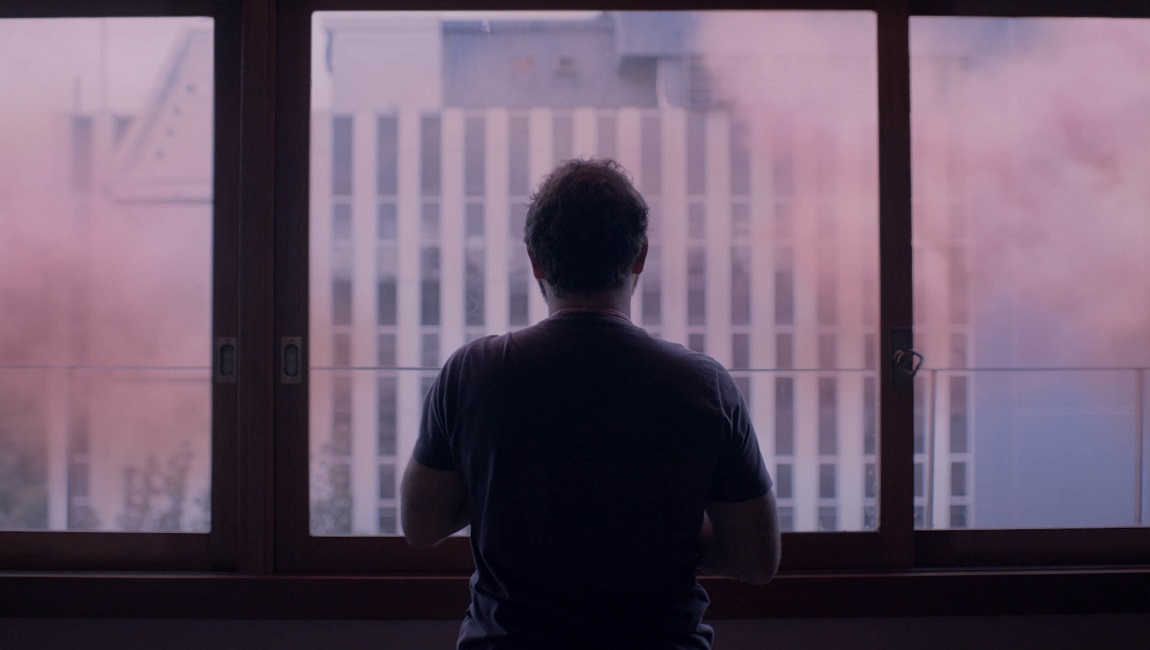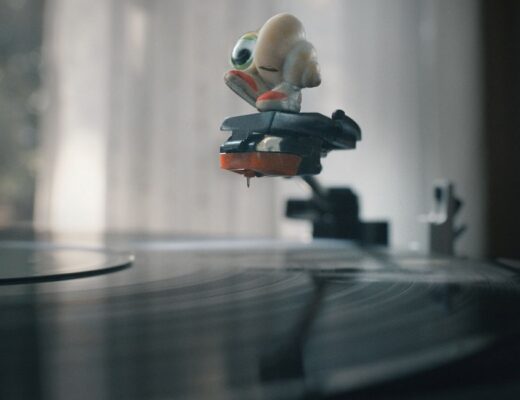An imperfect film, The Pink Cloud nonetheless stands as one of the defining pandemic texts despite — or perhaps because of — its predated genesis.
Iuli Gerbase’s The Pink Cloud opens with perhaps the most interesting disclaimer since Kevin Smith’s Dogma, one that has since become a tagline for her film: “Any resemblance to actual facts is purely coincidental.” Written in 2017 and filmed in 2019, The Pink Cloud (or A Nuvem Rosa) has the most inadvertently perfect marketing its creators could have hoped for, so much so that the film could easily be mistaken as part of the same strain of opportunistic dreck as Songbird or Locked Down (or, more generously, in the realm of better, less cynical pandemic efforts such as Host and Staged). The Pink Cloud, thankfully, is none of these. Instead, this feature debut from Brazilian director Iuli Gerbase, despite its eerie prescience of current circumstances, is a frightening and inventive look at isolation and long-term love, unreliant on any Covid context to boost its brand.
The Pink Cloud follows web-designer Giovana (Renata de Lélis) and chiropractor Yago (Eduardo Mendonça) after a one-night stand that, due to the arrival of the eponymous pink cloud, is stretched to breaking point over the course of years of indefinite confinement. Despite the occasional appearances of friends and family facilitated by video call, the film firmly hinges on and is carried by the understated performances of de Lélis and Mendonça. More than in most cinema, performance is crucial here, as the narrative demands of its two leads the ability to portray the same people across the span of approximately a decade, and so that Giovana and Yago both indeed feel like completely changed people by the end of the film is a triumph for both actors. Similarly, even the minor characters of The Pink Cloud, who only appear only in occasional, isolated scenes, feel like authentic, fleshed-out people, their situations harrowing; Giovana’s sister, as one example, remains the same age throughout the film, and her storyline, which involves being trapped in a home under the supervision of a childhood friend’s father, becomes increasingly disturbing as the years pass. At times, the film’s pacing can feel slightly muddied by its sprawling timeline, and The Pink Cloud can tend to feel like an untidy collection of scenes rather than a cohesive narrative. And when progression does feel intentional, it can sometimes scan as inelegant, with subjects discussed/foreshadowed in one scene immediately coming to fruition in the next. All the while, however, the central performances manage to keep the story grounded, and the evolution of Giovana and Yago’s coupling feels mostly organic, save for one particularly large development in their relationship.
The ongoing pandemic circumstance could be either a blessing or a curse for The Pink Cloud, and while it certainly doesn’t deserve to be dismissed as gimmick or pigeon-holed as pandemic cinema, it’s hard not to be struck by how much Gerbase’s script gets right. From the specifics of unusual living arrangements (although not quite as unusual as Giovana and Yago) to the readiness of corporations to slap a disaster-themed label on any and every service, the film is indeed memorable for just how accurate it all is. It’s interesting to consider how outlandish, or at least science fictional, the premise may have been considered at the time of writing or production, but regardless, The Pink Cloud will perhaps be the truest cinematic text of any of 2020’s efforts to depict what living is like in this pandemic moment. If there’s anything we’ve learned from the past year of yoyoing lockdown mandates, it’s that life finds ways to keep meandering on, even if those ways are not entirely satisfying. Instead of indulging in the potential melodrama that could have been minted from this premise, The Pink Cloud finds horror and poignancy in the defining realities of the scenario: boredom, loneliness, and a complete inability to do anything about it.
Originally published as part of Sundance Film Festival 2021 — Dispatch 1.







